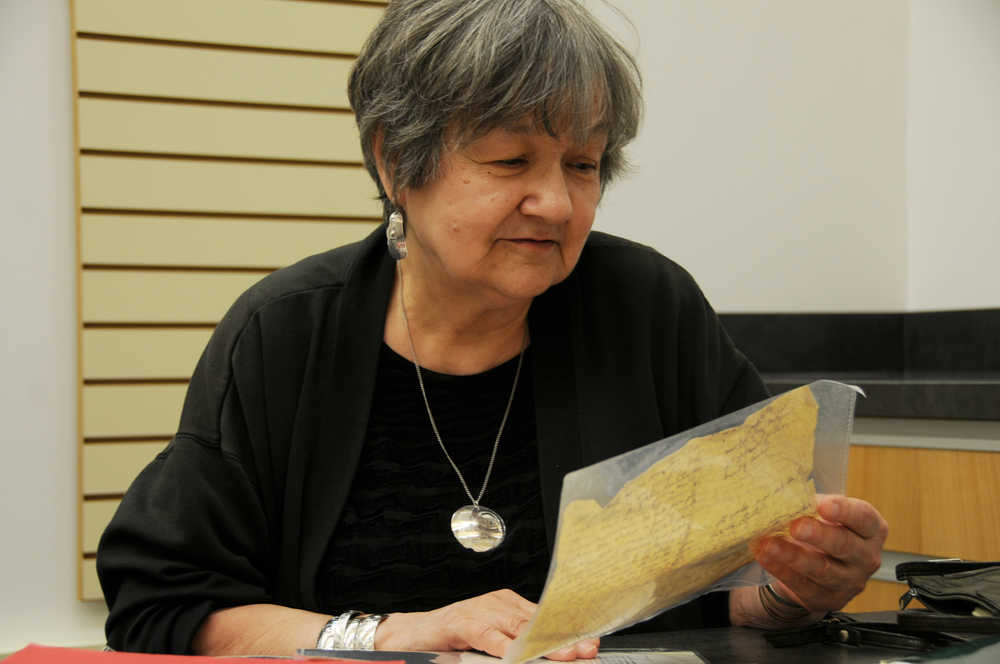KENAI – Ernestine Hayes’ memoir began on a crumpled paper towel in a San Francisco homeless shelter.
Through homelessness, loss and an eventual return to her hometown of Juneau, Hayes hung onto that scrap of paper. It eventually made its way, almost intact, into her book, “Blonde Indian: An Alaska Native Memoir.” Some of the phrases she wrote nearly thirty years ago stay true for her now, she said.
“I visited San Francisco last summer, and this phrase, ‘It would be so easy to sink into the streets,’ that’s still true,” Hayes said.
Hayes is traveling again this month, but this time Alaskans are waiting to greet her. Libraries in communities across the state, including four on the Kenai Peninsula, are hosting discussions where Hayes will speak to local readers. She visited the Kenai Community Library Wednesday, the 16th stop on her tour.
“Blonde Indian” was selected as the inaugural Alaska Reads book for 2016 by the Alaska Center for the Book in Anchorage. Public libraries across the state provided copies of the book to readers and discussion groups were held on the topic.
The memoir presents Hayes’ life from her childhood in Juneau as a half-white, half-Tlingit child to her relocation to California, her homelessness and her mother’s death there to her return to Alaska. She weaves together Tlingit clan stories with her own memories throughout the book.
The goal of the program is to connect Alaskans through a shared experience — in this case, reading a single book. The 2016 book was the first in what the Alaska Center for the Book is hoping will be a “long series of statewide reading events,” according to the program website. The books will always focus on some aspect of Alaskan life and culture written by an Alaskan author.
Hayes makes her home in Juneau again, teaching at the University of Alaska Southeast’s Juneau campus. Though she teaches Native American Literature and literature from Alaska Native and non-Native perspectives, she said she is most passionate to teach pre-college level English classes. It is there that many minority, low-income and first-generation college students turn up, she said.
Hayes experienced racism firsthand as a child in Juneau and afterward, but racism today is integrated into a system, she said. Low-income and minority students are overrepresented in prison and in other social ills, including many chronic illnesses, she said.
“I burn to teach those students,” Hayes said.
Writing her memoir was a revelatory experience for her, asking her to face many feelings she had not realized yet, she said. She has also finished another book that will be published in the fall through the University of Washington Press, called “The Tao of Raven: An Alaska Native Memoir.”
Hayes said she loves the work of other Native American authors, such as Thomas King’s “The Truth About Stories,” and Sherman Alexie’s work. She smiled and said he was “brash.”
“I like the things he said, and it made me think: if he can say these things, why can’t I?” she said.
• Elizabeth Earl is a reporter for the Peninsula Clarion. She can be reached at elizabeth.earl@peninsulaclarion.com.

